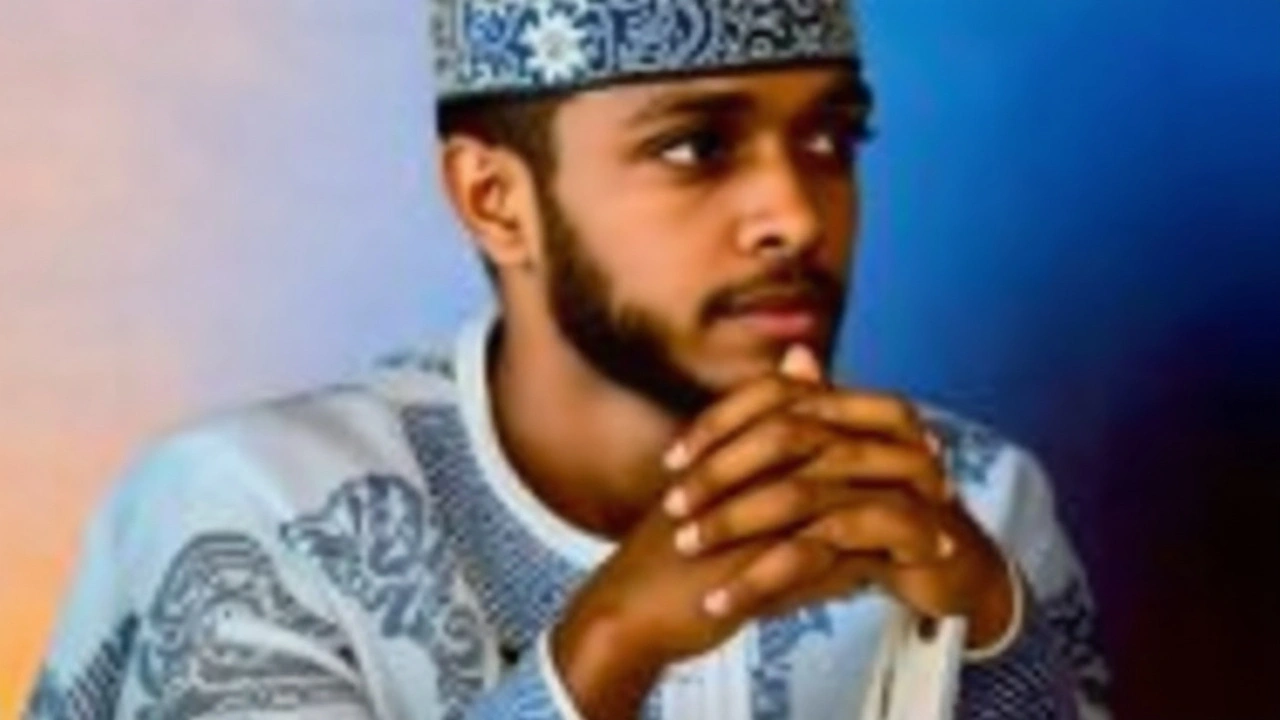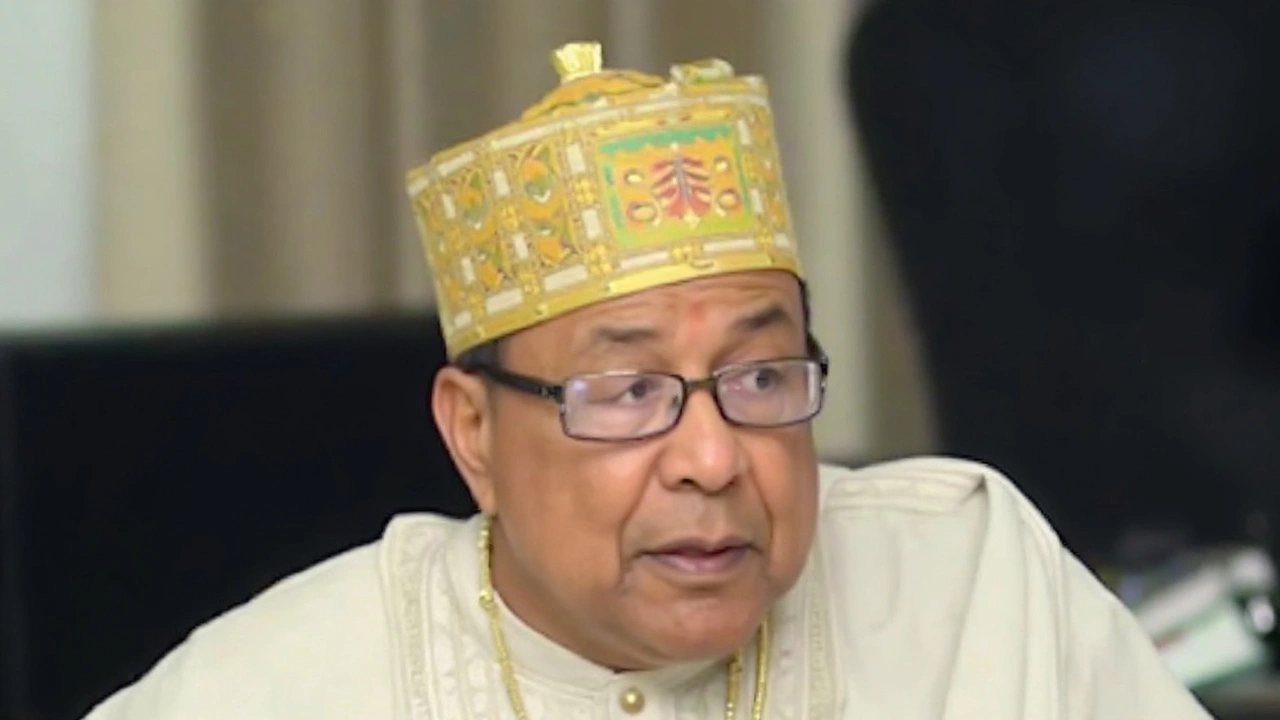 Feb, 26 2025
Feb, 26 2025
Abacha's Legacy Under Scrutiny
Raees Abacha, the grandson of Nigeria's former military head, Sani Abacha, has publicly criticized claims made in a new memoir by another ex-leader, Ibrahim Babangida. The book, titled Journey In Service, paints Abacha's grandfather in a negative light, describing him as a perpetual source of stress and a would-be coup plotter within Nigeria's military circles. Babangida's depiction suggests that Abacha was an instigator, attempting to undermine him by sowing discord with false narratives.
In a fiery response, Raees has taken to social media to refute these allegations, suggesting that Babangida's account is nothing more than a betrayal. He argues that Abacha, during his lifetime, remained a loyal ally, committed to safeguarding Babangida's position and reputation. In his words, Raees asserted that, had the roles been reversed, his grandfather would have never acted in such a treacherous manner.

The Controversy of June 12, 1993
The memoir doesn't just focus on personal grievances; it delves into the historically significant annulment of Nigeria's June 12, 1993, presidential election. Babangida claims that Abacha was behind this controversial move, a charge that has not only drawn ire from Raees but has also provoked wider debate among the Nigerian populace. Critics have long viewed this assertion as Babangida's attempt to dodge culpability for the political turmoil that followed.
Raees' outburst echoes sentiments shared by his uncle, Sadiq Abacha, further highlighting the family's discontent with how history is being recorded. They argue that their father's legacy will ultimately be judged more favorably by time and historical perspective than these recent portrayals suggest. Many view the memoir as Babangida's effort to craft a narrative that positions his actions in a more positive light while casting shade on others.
The memoir's release and the accusations within have certainly stirred up a hornet's nest, reviving discussions about Nigeria's complex political history and the legacies of its military leaders. As the debate continues, it remains to be seen how public opinion will sway as more voices join the conversation.

Vinay Upadhyay
February 27, 2025 AT 21:53Oh, look, another former general trying to rewrite history while polishing his own résumé. Babangida’s memoir reads like a self‑congratulatory bedtime story where every inconvenient character gets canned as the villain. It’s adorable how he conveniently forgets his own role in the June 12 fiasco, opting instead to slap the blame on a dead man’s grandson. The absurdity of claiming Sani Abacha was a “perpetual source of stress” is a masterclass in selective memory. I can almost hear the ghost of constitutional order sighing at this revisionist theatre. The narrative is stuffed with half‑truths, watered‑down facts, and a splash of melodrama, all served on a platter of personal vendetta. One must admire the sheer gall to accuse a deceased leader of plotting coups while ignoring the obvious chain of command at the time. The memoir’s claim that Abacha “sowed discord” sounds like a desperate attempt to iron out Babangida’s own guilt. By the way, the June 12 annulment remains a wound that no amount of literary spin can heal. If anything, Babangida’s fingerprints are still visible on the broken ballot boxes. Readers should be skeptical when a former head of state decides to act as a one‑man tribunal. It’s a textbook example of how history can be weaponised for personal aggrandisement. The bravado in his prose is matched only by the shallow analysis of the political climate of the early ’90s. In sum, the memoir is less a historical document and more a self‑serving confession, masquerading as an objective account.
Eve Alice Malik
March 5, 2025 AT 02:41The whole thing just highlights how many layers there are to Nigeria’s political saga. It’s easy to pick sides, but digging deeper shows how personal grudges can reshape public memory. I think we all benefit when more voices like Raʼees step up and demand a balanced view. History shouldn’t be a single‑person narrative; it belongs to the people who lived it.
Debbie Billingsley
March 10, 2025 AT 07:29This is an outlandish attempt to tarnish a patriot who defended our nation’s sovereignty. Babangida’s accusations lack any credible evidence and serve only his selfish agenda. Nigerians deserve the truth, not fabricated scandals.
Patrick Van den Berghe
March 15, 2025 AT 12:17Nice try Babangida .
Josephine Gardiner
March 20, 2025 AT 17:05It is indeed prudent to examine the narratives presented by former officials with a critical eye. The discourse surrounding the memoir may benefit from a measured and scholarly approach. One must consider primary sources alongside personal testimonies. Such balanced scrutiny will ultimately enrich our collective understanding of the period.
Jordan Fields
March 25, 2025 AT 21:53The memoir’s claims lack corroboration; factual verification is essential.
Divyaa Patel
March 31, 2025 AT 03:41When we peel back the layers of political drama, we uncover a tapestry woven with ambition, fear, and the relentless pursuit of power. Babangida’s memoir, in its glossy veneer, attempts to rewrite the chapters of a nation's tumultuous past, casting shadows where there should be light. Yet history is not a monologue; it is a chorus of voices, each bearing its own truth and trauma. The accusation that Sani Abacha engineered the June 12 debacle feels less like evidence and more like a desperate bid to deflect lingering guilt. In the grand theatre of military coups, motivations intertwine like tangled vines, and no single actor can claim absolute innocence or villainy. The grandchildren of these leaders inherit not only legacies but also the weight of contested narratives. As Raʼees raises his baton against the memoir, he does more than defend a grandfather; he shields a memory that many wish to dissolve. The battlefield of memory is fraught with personal grievances, yet it remains essential to remember that the people who suffered under authoritarian rule deserve clarity. One must ask: does the memoir illuminate the dark corners of 1993, or does it merely shift the spotlight? The answer lies not in ad hominem attacks but in rigorous archival research, testimonies from ordinary citizens, and a willingness to confront uncomfortable truths. Only then can we hope to construct a historiography that honors both the victims and the complex actors of that era.
Larry Keaton
April 5, 2025 AT 08:29Yo this whole thing is just a big drama fest lol Babangida is tryna pull a fast one but the people see through it. The memo is full of bs and misinfo, nvm what he says about Abacha. The truth will out ya know.
Liliana Carranza
April 10, 2025 AT 13:17Wow, the passion here shows how deeply these events still affect us! It’s inspiring to see such vibrant discussion springing up. Let’s keep shining light on all sides of the story and learn together.
Jeff Byrd
April 15, 2025 AT 18:05Sure, because a memoir written by a former ruler is automatically gospel. 🙄
Joel Watson
April 20, 2025 AT 22:53One must acknowledge the inherent complexity of post‑colonial power structures before passing judgment. Babangida’s perspective, though self‑serving, offers a glimpse into the intellectual milieu of the era. Still, a measured discourse is preferable to outright vilification.
Chirag P
April 26, 2025 AT 03:41While it’s easy to dismiss the memoir as selfish, we should also critique its factual gaps and demand rigorous sourcing. Constructive dialogue helps all parties move beyond personal grudges toward a clearer historical record.
RUBEN INGA NUÑEZ
May 1, 2025 AT 08:29Let’s cut the drama and focus on verifiable evidence. The memoir’s claims need solid proof; otherwise they’re just empty noise.
Michelle Warren
May 6, 2025 AT 13:17meh, same old story.